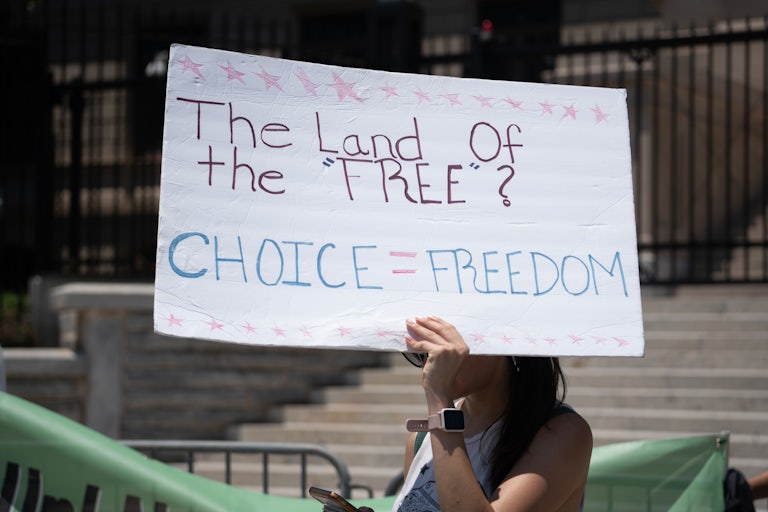Judge Overturns Georgia’s “Plainly Unconstitutional” Six-Week Abortion Ban
Most people don’t know they’re pregnant at only six weeks.

A judge in Georgia on Tuesday overturned the state’s ban on abortions after six weeks, a major win for women and gender minorities.
Georgia had passed a law in 2019 banning abortion as soon as a fetal heartbeat can be detected, which is as early as six weeks—before many people even know they are pregnant—but the legislation only took effect after the Supreme Court rolled back the nationwide right to the procedure in June.
A group of doctors and advocacy groups sued Georgia in July, seeking to strike down the law. Judge Robert McBurney sided with them Tuesday, ruling that the six-week ban “did not become the law of Georgia when it was enacted and it is not the law of Georgia now.”
Not only are two sections of the law “plainly unconstitutional,” but “there is no legal basis” for the statewide ban at all, he said in his ruling.
A spokesperson for the Georgia attorney general told the AP that they plan to appeal the decision.
The ruling is a huge win for people in Georgia, where Republican Brian Kemp was just reelected governor. Kemp had refused to say during a debate against Stacey Abrams whether he would sign more abortion restrictions into law if reelected.
Abrams had slammed his nonanswer, warning that “women are in danger” under this governor.
Her accusation was backed up by health professionals, who warned in a study that if abortion is banned in Georgia, maternal mortality will increase 29 percent. If the procedure is banned nationwide, then maternal mortality will rise 24 percent overall.
Maternal mortality among Black people nationwide will skyrocket 39 percent.
The United States already has the highest maternal mortality rate among developed nations, and Georgia has the second-highest rate in the country, of 48.4 deaths out of 100,000 births, according to the World Population Review.








